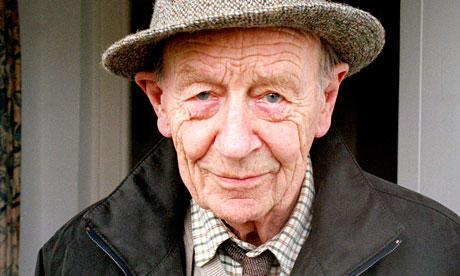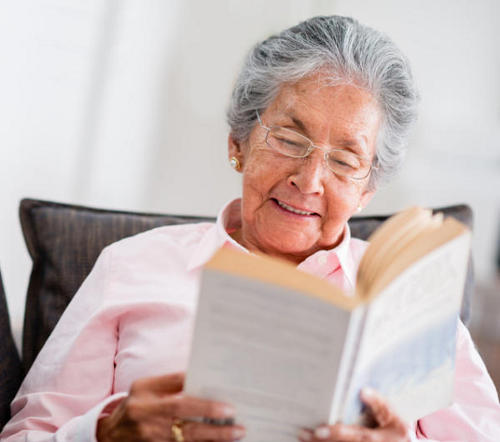A Pepper Grinder Post
The Splendor of Old Age?
Let's do a quiz. It's a fill-in-the-blank variety.
- The best thing about being in the 18-25 age range is ______.
Easy, right? I'd expect to see answers like being strong, being beautiful, being cool, etc. I imagine that if you asked people in our culture when the "prime of life" was, many would place it somewhere in that age range.
Now for the hard question.
- The best thing about being old is __________.
"Errr, uhh, can I have a little more time, please? Well, let's see. Old people are rich sometimes. Of course, it's so much better and cooler to be young and rich. Uhh, they can get those AARP discounts?"
 I am no social historian, but I have the feeling that this is a fairly recent change. There was a time when many young people were focused on becoming adults. Even in the 1950s, when you look at high school yearbook photos, the kids look like grown ups! There are still many cultures today where older people are respected and admired.
I am no social historian, but I have the feeling that this is a fairly recent change. There was a time when many young people were focused on becoming adults. Even in the 1950s, when you look at high school yearbook photos, the kids look like grown ups! There are still many cultures today where older people are respected and admired.
What happened to us? Did it start when we moved more and more to a culture where young people were not an integral part of the manpower needed to get the hard work of farming done? Or was there a huge paradigm shift in the 1960s, with new attitudes being expressed like the famous line from "My Generation" by The Who: "Hope I die before I get old"? I feel doubtful that new ideas about youth and old age simply appeared out of nowhere in the sixties. My guess is that the ideas were already starting to form, and the youth of the sixties just expressed them with their trademark honesty.
I think part of why the idea that youth is everything and old age is the absence of youth became so entrenched in our society is that the advertising world appropriated it. As young people started to have more income, and as the time increased before the average young person had to start supporting other people, the advertising industry realized that there was this huge untapped gold mine. Young people were the ones who could spend money any way they wanted, and they were the also the people with the most malleable ideas about what is good or cool. Advertising became more and more geared to teens and single young adults. Soon, other media followed.
Think about older TV shows like "Leave it to Beaver" or "The Waltons." The kids were charming and special, but the adults were invaluable sources of wisdom who often stepped in and saved the day. Now think about modern TV and movies. So often, the parents seem to range from well-meaning buffoons to people who are immature or outright evil. When some piece of crucial wisdom is imparted, it is often the parent who is learning from the child. This is the information continually feeding our society like an IV drip.
- Kids/young adults = cool, strong, beautiful, wise.
- Parents/older adults = none of the above.
 And what do we see now that people like Bob Dylan (the man who told his parents' generation that "your old road is rapidly agin'") are in their sixties or seventies? Have they come back and said something like, "Well, actually, your parents do have some good things to say"? It doesn't seem like it. Mostly it seems like we see more and more older people trying to look and act like they are still young. They work out. They dye their hair, and wage a desperate battle against facial wrinkles. They try to wear the same fashions that kids are wearing. They ditch their spouses in the same self-centered way that junior high kids dump their boyfriends and girlfriends. As Lady Polly said of Queen Susan in The Last Battle by C.S. Lewis:
And what do we see now that people like Bob Dylan (the man who told his parents' generation that "your old road is rapidly agin'") are in their sixties or seventies? Have they come back and said something like, "Well, actually, your parents do have some good things to say"? It doesn't seem like it. Mostly it seems like we see more and more older people trying to look and act like they are still young. They work out. They dye their hair, and wage a desperate battle against facial wrinkles. They try to wear the same fashions that kids are wearing. They ditch their spouses in the same self-centered way that junior high kids dump their boyfriends and girlfriends. As Lady Polly said of Queen Susan in The Last Battle by C.S. Lewis:
She wasted all her school time wanting to be the age she is now, and she'll waste all the rest of her life trying to stay that age. Her whole idea is to race on to the silliest time of one's life as quick as she can and then stop there as long as she can.
What about the church? Surely we Christians have stood against the prevailing winds of our culture! In my opinion, we have not done so as much as one would hope. Church youth groups often seem to focus on providing kids with cool, fun experiences (with a light sprinkling of Christianity), rather than encouraging kids to focus on becoming serious adults who are completely committed to Christ. In fact, so often, the whole structure of the youth group is one where kids are separated from their parents and put with other kids their own age, under the leadership of someone who is almost invariably younger than their parents. This seems to convey the subtle message, "We know your parents are SO un-cool. Here is somebody who is cool AND who cares about Jesus!" Rather than try to create a culture that is based on the Bible instead of following the model created by media and advertising execs, we have too often simply tried to create a tamer, slightly Christian version of the society around us.
I feel like I'm forgetting something, something to do with one of the words in the last sentence. Bible, that's it! This is supposed to be a Bible blog! OK, how about this?
The glory of young men is their strength, gray hair the splendor of the old. -Proverbs 20:29 (NIV)
The first thing I want to point out about this verse is that it does NOT say there is nothing good about being young. This passage and others (like 1 John 2:14) don't hesitate to point out that there are benefits to youth. Strength is one, but I certainly think we can throw in some others like beauty and flexibility, to say nothing of energy or enthusiasm, or (often) confidence.
Then, however, the Bible goes on to do what it seems to me our society almost never does: it speaks of the splendor of the old. Just using splendor and old in the same phrase seems pretty radical. And what is this splendor? Young men are .... STRONG! Old men are .... gray? What's so great about that? Many people in our society spend a fair amount of time and money to avoid gray hair.
I do not think this proverb is really saying that gray hair is, in itself, the splendor of old age. It is saying that old age itself, along with the wisdom and maturity that usually come with years of hard knocks and disappointments, is the crowning glory of the old.
This wisdom and maturity is what we have spurned by believing that physical beauty, strength, and health is everything. We make enormous efforts to hold onto youth as long as we possibly can, and in the process, we tell the elderly and ourselves that there is nothing good about old age, making ourselves dread it all the more. The saddest thing to me is that, the longer this goes on, the more older adults there are in our society who really do NOT have wisdom, but instead are either shallow or who act like adolescents with wrinkles instead of acne.
What can we do to reverse this?
If you are young, my advice is to seek out the advice of older adults, especially your parents. There may be things they are off base on, but, speaking as someone who was raised by non-Christian parents, and whose one living parent is still not a believer, I can say that there are still plenty of ways you can learn from them and emulate them. Focus on the good things in them and not the bad. I would also say this to young parents: the way you treat your parents now is probably the way your children will treat you when they are grown up.
If you are middle-aged or older, my advice is NOT to try to be young. No matter how many people accept it, don't buy into our society's belief that youth is everything. Instead of trying desperately to cling to what you are losing, focus on what you do have. You have experiences that other people don't have; you know things other people don't. Work on being a wise but humble person. And remember, the very thing our society sees as a curse is actually your splendor.
- Pepper
Posted 2015-07-30
*Photo of man in a hat from www.theguardian.com, photo of woman reading from medresearch.tumblr.com.
